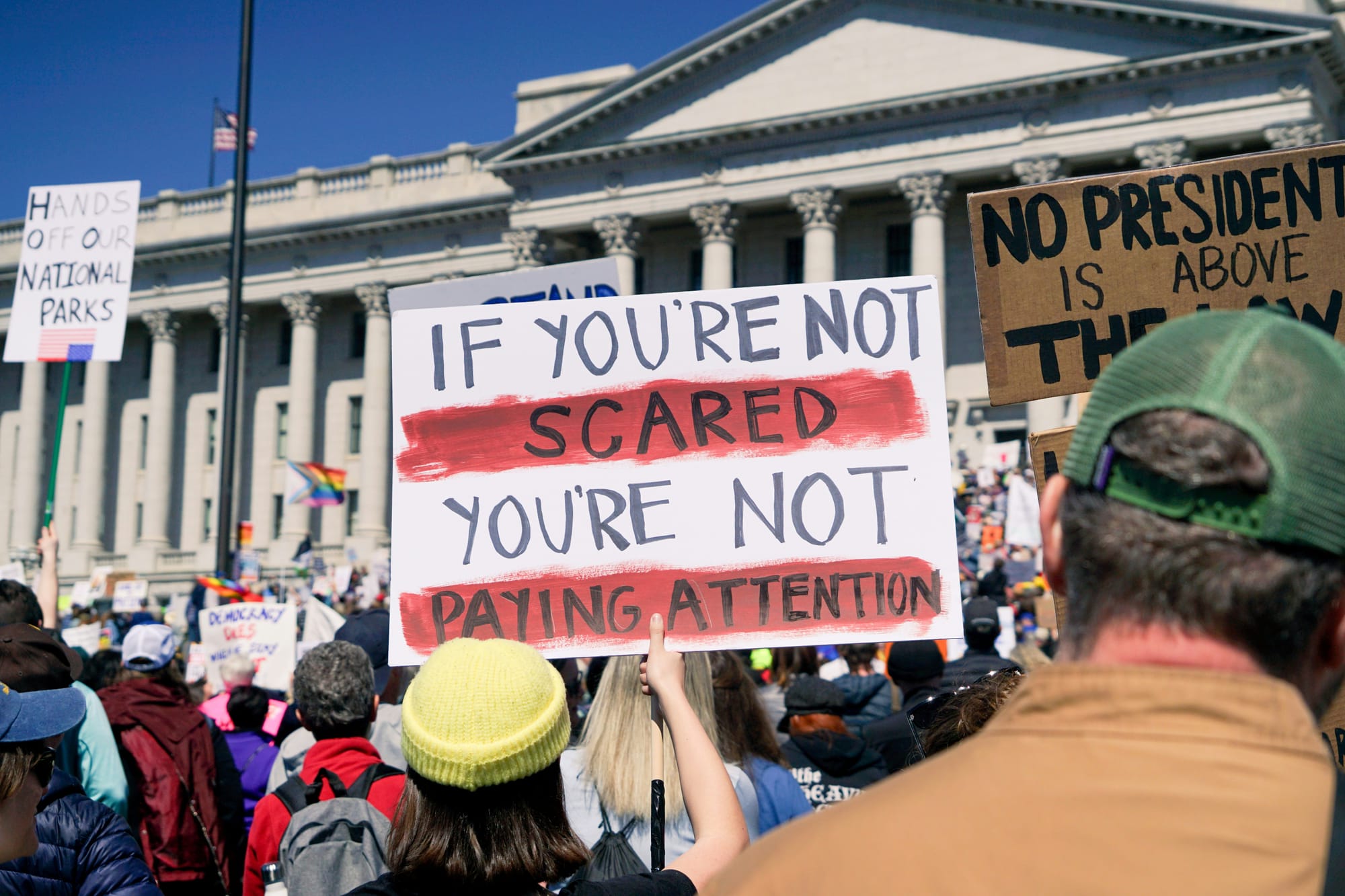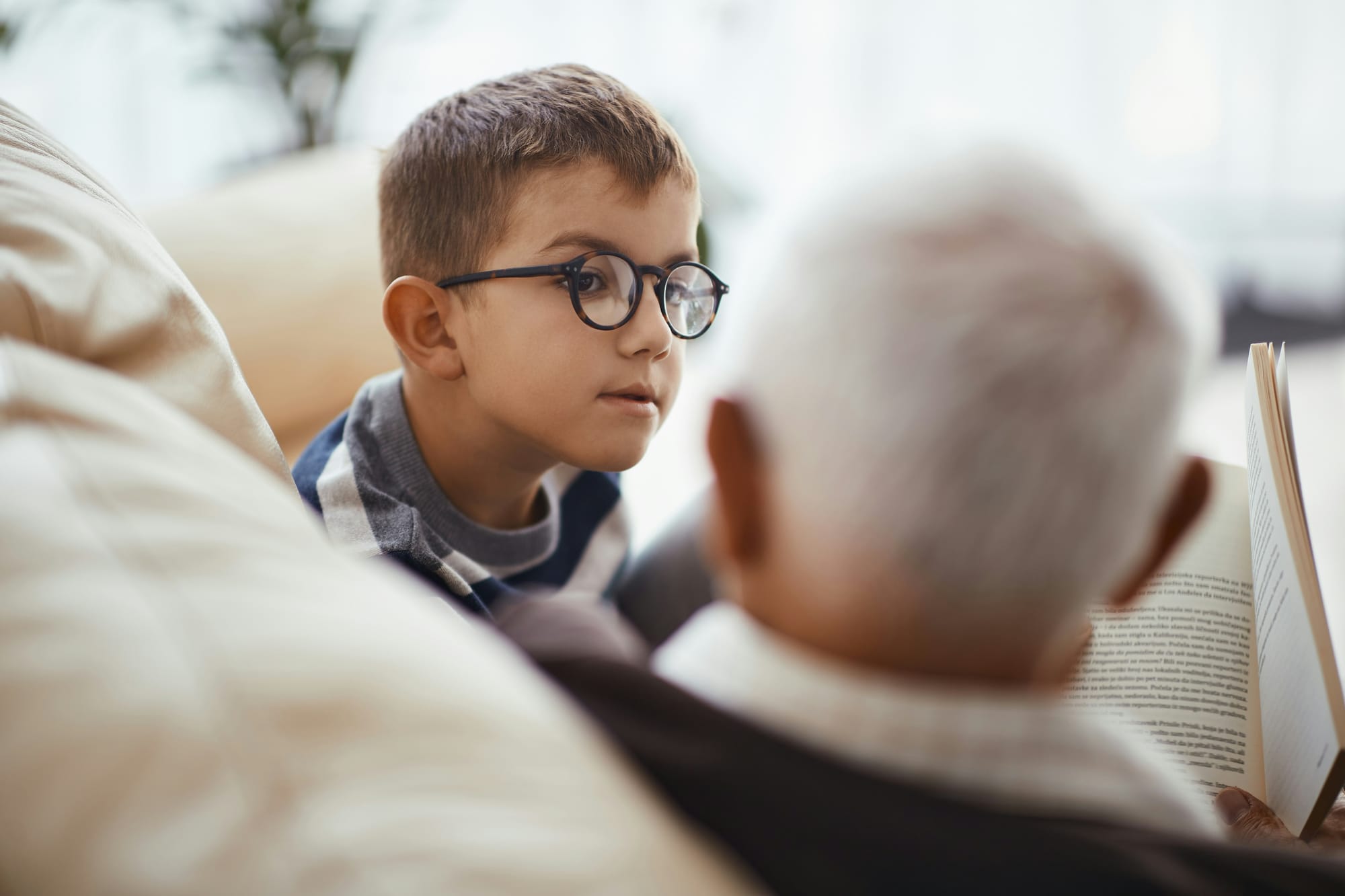Defending freedom of speech, one grandchild at a time

Freedom of speech is under attack from two directions. The first is the government’s direct assault, attempting to silence big names, like Colbert and Kimmel, and—so far via a horde of proxies—small voices like teachers, government employees, and others like us. The second, less direct, assault is from artificial intelligence (AI). If AI writes your papers or “creates content” for you, no matter how clever you are at posing the prompt or even tweaking what it says, it is not you who developed the idea or wrote the words. It is you plus whatever AI brings to the table or leads you to. In doing this, AI undermines free speech by weakening free thought and the ability to express oneself. (In case it isn’t clear from that, I will never, ever, use AI to write anything for this blog.)
Let me be clear: Free speech can be ugly. From left, right, or center, it can be hateful, disrespectful, unmeasured, or ignorant. And speech curtailment isn’t just from the right: the left has done its own social monitoring of speech, in “political correctness,” cancel culture, and policing of curricula and attitudes at colleges and universities (I’ve experienced that last one). Seeing the ugliness, it can be hard to favor free speech for all. Why let all that vitriol into society? But seeing that freedom of speech can be attacked from any direction helps us see that valuing freedom speech means valuing speech we don’t agree with.

Why does free speech matter?
But wait—what’s so important about freedom of speech? Why not keep your concerns or ideas quiet and go along with the flow? Quick answers: For one thing, people need to be able to speak up when others are being hurt—or when we ourselves are being hurt. We also need to be able to explain to others, to arouse others, to seek support from others, and bring others’ experience and thoughts to the table to correct our own misapprehensions.
But what if—counterfactually—no hurt were occurring, so there was no urgency? Even then, being able to express yourself is a central human experience, simply because it is your self you are expressing. As you talk, and think, and write, and plan, and act, you are forming your self. This is equally true whether you agree or disagree with whatever is going on in your institutions or government. But we all need the freedom to develop ourselves in the shape of ourselves, not in the shape of institutions that control us. We each need to find our own voice.
That is why I’m bringing AI into this discussion. Because before we can speak freely, we need to learn to speak—and that, I’ll assert, means that we need to learn to think for ourselves, which is exactly the ability AI undermines. (OK, the internet and social media more generally, too, but AI makes it worse.)
Some years ago, American philosopher Louise Antony wrote about the power and freedom she felt as she found her own voice, gaining release from her small-town upbringing and the strictures of a conservative Catholic education. She said:
Antony’s revelation illustrates that other reason freedom of speech is important: Freedom of speech lets you express you, and that is a deep and irreplaceable joy and source of power.
So, taking a pessimistic—but not unrealistic—view of recent developments in government and easy access to ChatGPT and the like, I’m terrified for all of us, and particularly for younger generations, including our grandchildren. If the two assaults on freedom of speech roll forward, our grandchildren won’t have the chance we did to speak—or choose, or act—as they see fit. At this critical juncture, we grandparents (and parents) can fight back in two ways: On a civic level, we need to demand our freedom to do these things. I won’t address that angle today. On a personal level, which I will discuss here, we must do what we can to raise children who develop, know, and speak their minds.

Teaching a taste for free speech
So how do we teach our grandchildren?
First, stay away from the @#)$%(* phone and computer while you’re with them. (I’m working on this…). In particular, avoid jumping to look up “the answer” to anything. Sometimes you’ll want or need a specific fact, but give it some thought first—it’s fun!
Second, listen to the kids. For example, you may have noticed that most of my posts on crafting, or art, or even poop talk minimize following certain instructions and maximize freedom of exploration or expression. That is by design. The kids will have lots of chances to learn to do things “by the book,” or to get whatever they are doing to be “right” according to various criteria, teachers, or rules. More important, I think, is to play up that other side, where the children are free to explore their own ideas and to express them as they see fit.
I also recommend steering clear of preachy books, of which there are multiple genres around manners, behavior, attitudes, etc. (For the record, I don’t like the PC ones any better than the conservative ones.) Books where there is some question, or layering, or ambiguity are much better for letting kids develop their own ideas. At the very least, if there is a message or moral, it should flow naturally from the story, rather than compressing the story to the point: Think The Story of Ferdinand vs. the Berenstain Bears series.
And let the grandchildren argue with you (civilly), and convince you if they can. The disagreement doesn’t have to be of great import. For example, one grandchild and I like to play double solitaire. In the rules I grew up with, you weren’t allowed to move partial columns in your tableau from to another column, and you could only go through your remainder pile by threes. Rather than enforcing these rules, I let Grandchild explain to me that relaxing these rules was better because it increased your odds of winning. And I explained my views on the challenge of having the stricter rules. And then we compromised: we relaxed the column-shifting rule but not the remainder pile rule. Encouraging children to argue well at home with trusted people gives them practice they can use in the real world: This same grandchild recently used his freedom of speech to defend a classmate with disabilities, and to dissuade his neighborhood friends from riding their bikes on the other neighbors’ lawns (let me emphasize [!] that credit goes to Grandchild and his parents, not to my occasional reinforcement).
So, given the urgency, do what you can to teach your grandchildren the joys and power of free speech now! Offer them opportunities to stretch their minds and ideas, let them question you or disagree with you, encourage them to explain their reasoning or interests, or let them choose to do something you wouldn’t do (within the realm of safety, of course!). Helping them learn that they can have and that they want freedom of speech may be the most important legacy you leave them.